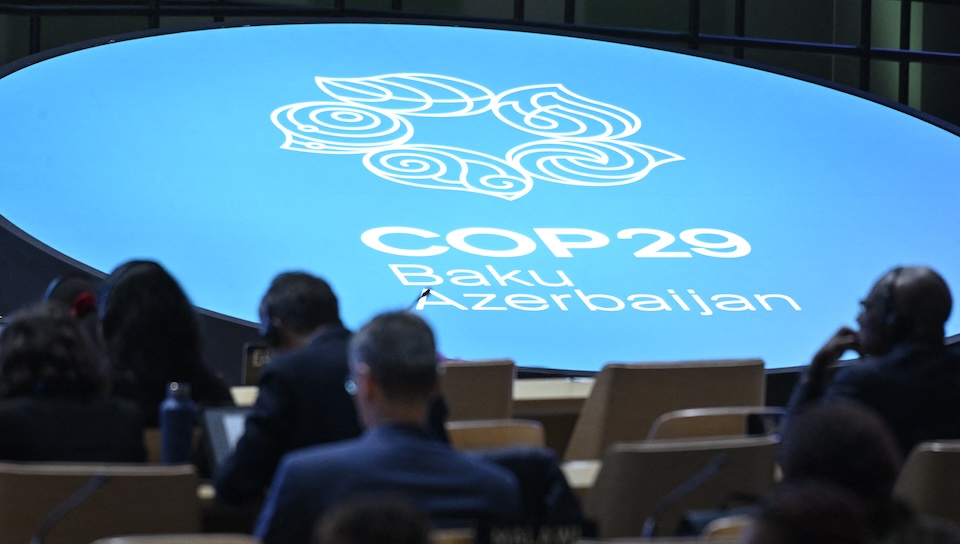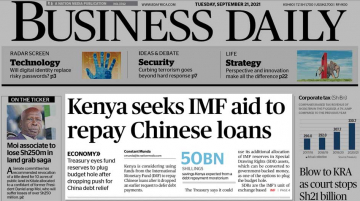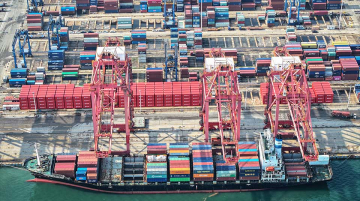
On the second day of COP29 in Baku, Azerbaijan, China’s Vice Premier Ding Xuexiang said that Beijing has already mobilized about $24.5 billion to help address climate change in developing countries while also hinting at more ambitious targets at home to achieve “carbon neutrality” before 2060.
This comes at a time when the prominent theme for African countries in global climate negotiations is scaling up financing for climate adaptation and green growth. Climate finance, a commitment outlined in Article 9 of the Paris Agreement, calls for developed countries to mobilize resources to help developing countries adapt to climate change and reduce emissions. In Baku, the Chinese delegation has been notably proactive in advocating for enhanced financial flows to these nations. However, the critical role of China in supporting developing nations, particularly in Africa, as they confront the mounting climate crisis could most likely be overshadowed by the re-election of President Donald Trump.
It’s also important to recognize that China is the world’s largest overall emitter of greenhouse gases. While its per capita emissions are lower than those of the United States and other advanced economies, China’s aggregate emissions remain the highest globally. Additionally, China still relies on coal for 61% of its energy needs, reaching a record coal production of 4.66 billion tons last year—the highest level since 1990. These factors add complexity to China’s climate record, even as the country has made significant strides in addressing climate change.
Fred Njehu, a pan-African political strategist at Greenpeace Africa, emphasized the solidarity built between African negotiators and their Chinese counterparts.
“The support from China is crucial not only in ensuring more finances flow into Africa but also in setting a stage for an agreement on a new, collective, and quantified goal for climate finance. We need more ambitious commitments to address both the climate and development needs of our continent,” Njehu explained.
Rising Contributions From Western Nations Insufficient
Ding’s announcement quantifying financial contributions marks a significant shift as China positions itself as a leader in global climate finance—an image that could be solidified further given the wavering commitment of the United States under the leadership of Trump, a known climate skeptic.
Njehu added that China has a unique opportunity since the shifting political dynamics, particularly with Trump’s return, could alter the climate landscape.
“Despite rising contributions from Western nations, these have often been insufficient and there’s an ongoing debate about expanding the pool of contributors. A key issue is whether these contributions should be voluntary or mandatory and the final decision will significantly shape climate finance.”
With proposals already given regarding financing, Njehu said that reaching a consensus will require significant political will.
While Trump’s potential impact on Africa-China climate partnerships is unpredictable, the climate finance expert painted a scenario of uncertainty.
“During Trump’s first term, there was a backlash against climate commitments. A withdrawal from the Paris Agreement could severely impact Chinese green energy products, leading to tariffs and slowing the global shift toward renewables. This would hinder efforts to transition to cleaner energy sources, with far-reaching consequences,” he warned.
Njehu also addressed the contentious debt issue and its implications for Africa-China relations. China’s resistance to discussing debt at COP29 raises concerns, especially for countries indebted to Beijing.
“Many African nations are grappling with debt distress and balancing debt repayment with urgent climate action is an immense challenge. We must push for more grant-based financing, which could alleviate some of the financial strain.”
China Essential For Africa’s Energy Transition
He emphasized that stabilizing African economies while managing debt is a delicate task, advocating for debt cancellation or restructuring to facilitate climate resilience.
Leveraging partnerships with China remains essential for Africa’s energy transition and African countries should position themselves as prime destinations for renewable energy investments.
Njehu said that since renewable projects remain costly, African countries need financial flows from China, the EU, and the U.S. to unlock their renewable potential.
“Energy access is a pressing need, with over 600 million Africans lacking electricity. The ultimate goal is energy access through renewable sources,” he emphasized, calling for technology transfer and investment.
The question of whether African nations will secure the necessary climate finance remains open. The urgency of financing adaptation and loss and damage has been a key demand at successive COPs, but actual implementation has lagged.
“African countries must push for a dedicated sub-goal on loss and damage in the new climate finance framework,” Njehu stated. He underscored the need for China’s solidarity and pressure on other nations to ensure climate finance commitments are met.
“Tracking where the money goes is crucial so that we don’t end up with empty promises but tangible benefits for Africa.”
The stakes at COP29 are high, with the future of Africa-China climate partnerships hanging in the balance amid evolving global dynamics. As negotiators continue, the hope is for actionable outcomes addressing both Africa’s climate vulnerability and its aspirations for sustainable development.







